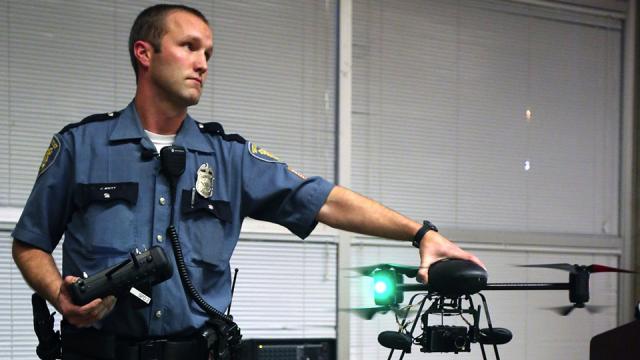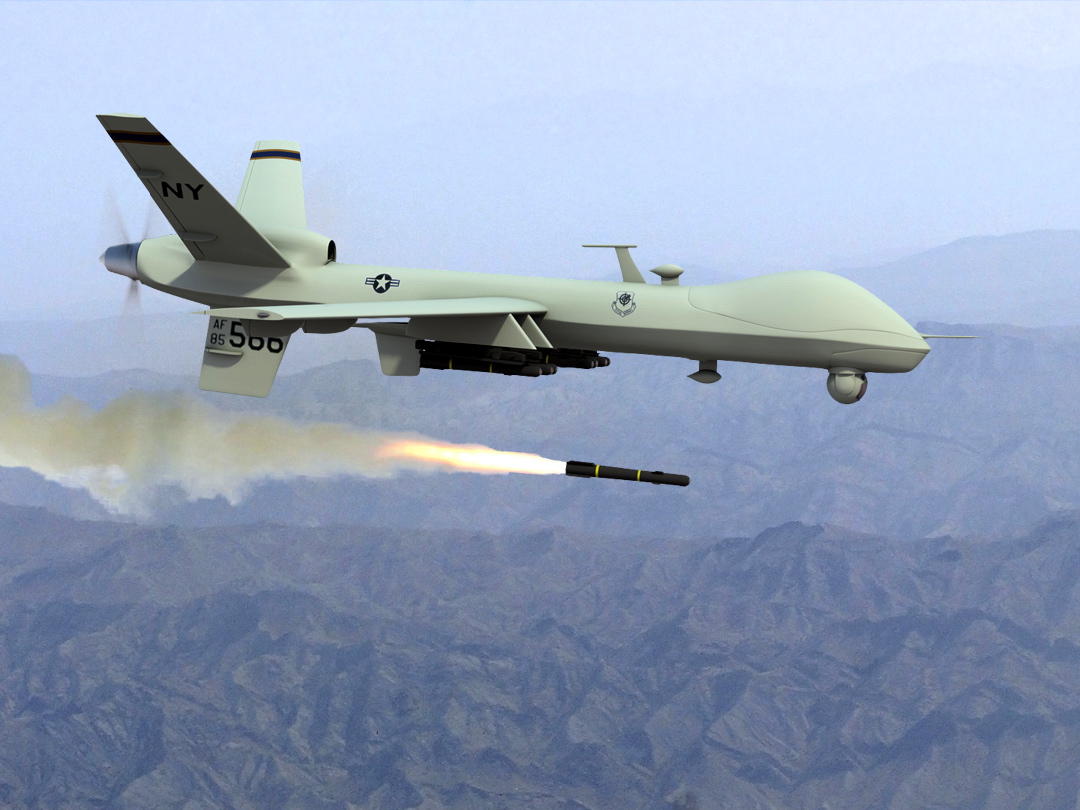
Last week, Tennessee became the latest state to pass legislation limiting unmanned aerial drone flights in its territory. Governor Bill Haslam signed the Freedom of Unwarranted Surveillance Act into law making it the fifth state to have passed legislation restricting drone surveillance by police and federal agencies.
Citing a tally published by the American Civil Liberties Union, CBS News reports this month that legislation aimed at limiting drone flights by police departments has been proposed in 41 states and enacted into law in five states.
The legislation bucks previous industry projections claiming multibillion dollar growth in drone manufacturing over the next decade.
Previously, the Federal Aviation Administration projected that there could be as many as 30,000 unmanned drones flying in U.S. airspace by 2020.
The state law comes on the heels of President Obama’s policy speech Thursday, addressing drone use abroad in operations that kill suspected terrorists and militants. The president defended the use of drone strikes, saying, “Let us remember that the terrorists we are after target civilians, and the death toll from their acts of terrorism against Muslims dwarfs any estimate of civilian casualties from drone strikes.”
Some were left unsatisfied by his defense, worried that Obama will continue to use his powers broadly, in ways that could violate the constitution. Senator Angus King of Maine called the speech “astoundingly disturbing” and said the Defense Department officials “have essentially rewritten the Constitution.”
The Bureau of Investigative Journalism reports that since 2002, U.S. drone strikes have killed up to 947 civilians in Pakistan, Yemen and Somalia.
According to the Association for Unmanned Vehicle Systems International, the main drone lobby organization, promises23,000 new jobs across the U.S. by 2025. Global spending on unmanned aircraft is projected to double over the next decade, from $5.9 billion annually to $11.3 billion. The Teal Group, an aviation and defense consulting firm, predicts that most of this growth will be in the U.S.
Drones have many uses including energy exploration, weather research, traffic control, wildlife tracking and movie production. For legislators in Tennessee, police drone surveillance remains a concern that led to the passage Monday of the bill limiting their use. Earlier industry estimates may have to be reduced after Tennessee and other states curb drone flights.
The Tenth Amendment Center, a group supporting states’ rights and individual liberties, describes the bill introduced by Tennessee Sen. Mae Beavers as having undergone a “roller coaster adventure through the legislative process” before eventually passing 32-0 in the Senate and 91-0 in the House.
“As this number [of drones] increases, it is very important that they are operated responsibly and consistently, as well as in accordance with our Fourth Amendment Rights,” Beavers said in April when the bill passed the state’s Senate.
The Fourth Amendment to the U.S. Constitution guards against unreasonable searches and seizures, and requires warrants be judicially sanctioned and supported by probable cause.
Several exceptions are granted in the Tennessee law, allowing the federal government to fly drones in order “to counter a high risk of a terrorist attack by a specific individual or organization if the United States secretary of homeland security determines that credible intelligence indicates that there is such a risk.”
State and local law enforcement agencies are still allowed to fly drones for surveillance purposes, but must first obtain a search warrant signed by a judge in order to do so. Only in cases “to prevent imminent danger to life” such as a terrorist attack, are police allowed to forgo the warrant approval process.
Tennessee now joins a bevy of other states that have either proposed or enacted legislation limiting the use of unmanned drone aircraft in their airspace.
There is still active legislation currently being debated in 28 states.
3 WAYS TO SHOW YOUR SUPPORT
- Log in to post comments















